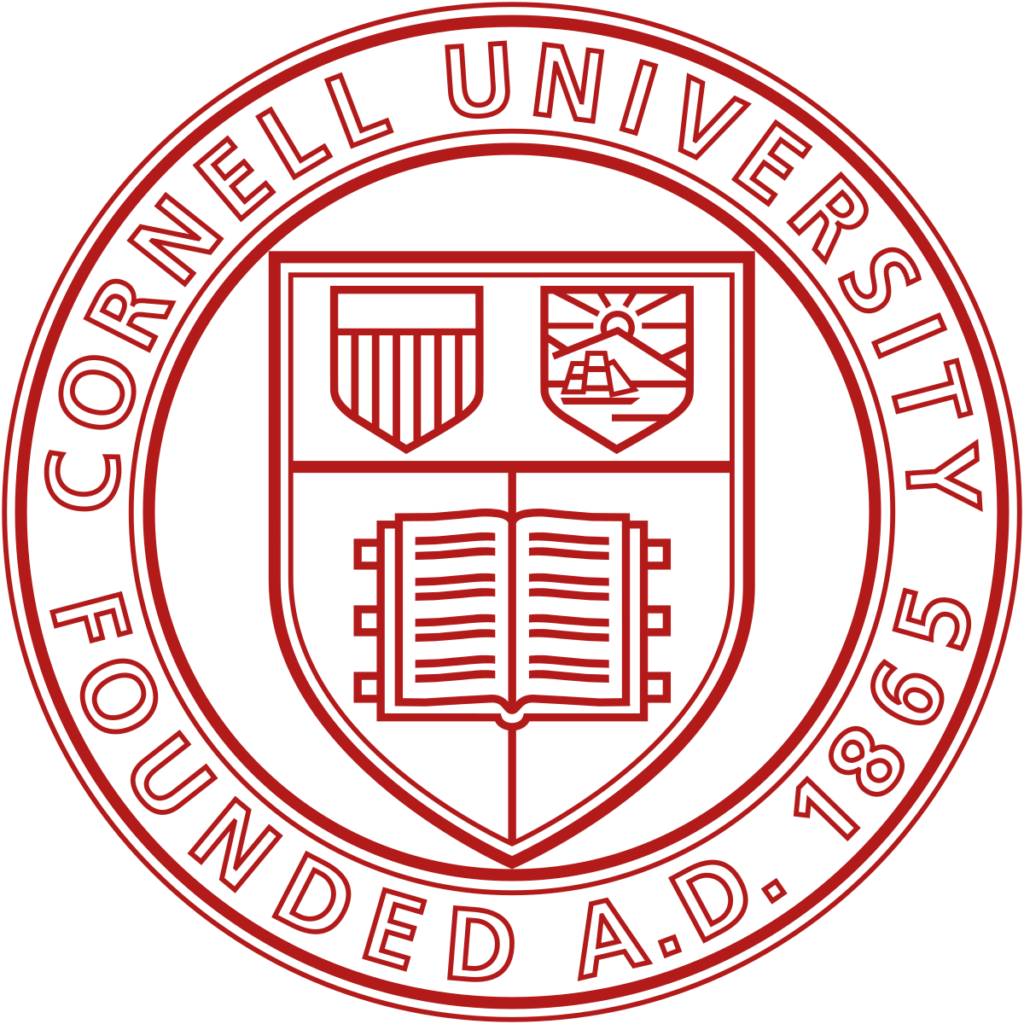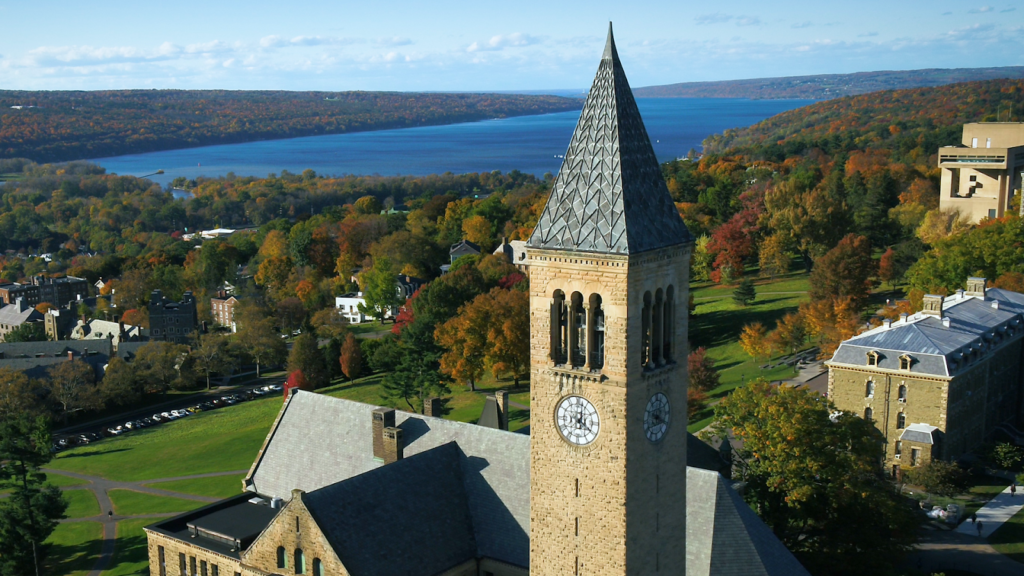The Ivy Scholars guide to Cornell University’s culture, admissions, and other essential information for prospective students and their families.
Location: Ithaca, NY
Mascot: Big Red
Type: Private & Land-Grant Research University
Population: 23,500 (15,000 undergrads)

Cornell University was founded in 1865 in Ithaca, NY, with a unique mission for the time: to provide an institution where any person could find instruction in any study. The university has an undergraduate focus and has the highest acceptance rate of the Ivies hovering at around 14%. It also has a beautiful “Harry Potter” like library, a highly ranked architecture school, and a rich culture steeped in tradition.

Year Founded: 1865
4 Year Graduation Rate: 94%
Gender Distribution: 53% male, 47% female
Acceptance Rate: 13%
Residency: 25% in state, 51% out of state, 11% international
Location Type: College Town
Schedule System: Semesters
Student/Faculty Ratio: 9:1
Average Class Size: 10
Demographics: 36% Caucasian, 15% Asian, 10% Hispanic, 5% Black, 4% Other
Enter your information below and submit for access to the guide.
US News Rankings:
Independent Rankings:
Application Deadlines:
Notification Dates:
Acceptance Rates:
Average Applicant Pool: 49,000
Average Number of Applicants Accepted: 5,000
Average Number Enrolled: 1,000
Application Systems: Common App, Coalition App
Average GPA: 4.07 weighted
SAT Scores: 25th percentile – 1400, 75th percentile – 1560
ACT Scores: 25th percentile – 32, 75th percentile – 35
*Test mandatory. Writing sections optional.
Subject Test Requirements: No Subject Tests are required, but it is recommended that a student submit two SAT Subject Tests related to their proposed area of study.
Demonstrated Interest: Cornell does not consider demonstrated interest.
Recommendation Letter Policies: One counselor recommendation and two teachers with one relating to the planned field of study. Additional recommendation letters are accepted, and online submissions are recommended.
Cornell University Essay Prompts for 2020:
School Specific Prompts:
Special Notes:
Although Ivy League Schools are chartered as private institutions, Cornell has some undergraduate colleges that receive funding from the state. There are nine privately endowed and four publicly supported statutory colleges (Agriculture and Life Sciences, Human Ecology, Industrial and Labor Relations, and Veterinary Medicine).
Schools:
Core Requirements:
What Majors Does Cornell University Offer?
What Minors Does Cornell University Offer?
Cornell University AP Credit Policy:
Honors Programs:
Research Availability:
Study Abroad:
Business Options:
Pre-Med Options:
Pre-Law Options:
Additional Specialty Programs:
School Motto: I would found an institution where any person can find instruction in any study.
Mission and Values:
Cornells’ Residential College System:
Housing Statistics:
Campus & Surrounding Area:
Safety Information: (Campus Safety, Cornell, College Factual)
Transportation:
Traditions:
Student-Run Organizations:
There are two types of student-run organizations: Independent and University. Faculty and staff of independent organizations are volunteers. University organizations are affiliated with a specific office or department at the university.
Sports:
Greek Life: Cornell’s Greek Life dates back to 1868, and ⅓ of students participate.
Nightlife:
Yearly Cost of Attending Cornell University in 2020:
Private Colleges:
State Contract Colleges:
Financial Aid:
Scholarships:

Ivy Scholars is the leading educational consultant in Sugar Land, Texas, providing admissions coaching, test prep, and more to help students enroll at top tier schools.

Call us now: +1 (281) 215-5148
.
Get expert tips, admissions updates, and resources delivered straight to your inbox.


